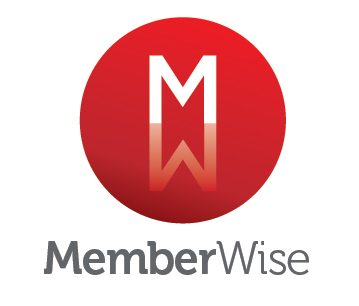In case you haven’t noticed, the world’s turned upside down.
Across the membership sector, the ‘new normal’ is forcing many organisations to face up to a precarious new reality – and arts and heritage organisations have been among the hardest hit.
A few weeks ago, National Trust for Scotland announced that hundreds of jobs were under threat – and that they may be forced to sell off land to make ends meet.
And now the Sky News is reporting that more than half of UK museum directors are concerned their institutions will no longer be viable in the wake of the coronavirus crisis, as social-distancing controls threaten to hit visitor numbers and income.
It’s no surprise: after all, when your commodity is experiential, what happens when the experience is compromised?
A necessary shift
Many arts and heritage organisations are charitable organisations. But there’s been an understandable nervousness about going out to their audiences and asking them for support.
It does require a shift in mindset: when your entire model has been based around giving transactional value, it’s a daunting prospect to reach out and ask for support.
But if your organisation is considering taking a similar step, here’s some simple advice to make sure you approach it in the right way.
Don’t be afraid to ask…
Just because you’ve never asked for donations before, it doesn’t mean you should shy away from doing so now. Remember – these are strange times.
So if your organisation’s future really is on the line, don’t be afraid to lay it out.
Some sections of your audience may be reluctant to donate when they’re already paying for their membership – and they may even be vocal about it.
Don’t let the fear of a negative response from some quarters sway you, though. Many others will feel invested in the work you do, and be keen to play a part in securing your future.
Aim your message at that core, supportive audience, rather than trying to speak to everyone.
…but be sympathetic to where people are at
Remember that many of your members will be tightening their belts at the moment – and show that you understand the challenges they may be facing.
You could take it further still. It might seem counter-intuitive, but by offering members the option of pausing their membership, you could find that you generate even more goodwill in the short term – and a deeper relationship in the longer term.
Don’t over-complicate
The challenges you’re facing might be complex. But it’s important that you can keep your ask super-simple.
So remember the basics of emergency fundraising: show a clear sense of jeopardy and urgency. And show the tangible impact a donation could have.
You should aim to boil your basic ask down to a couple of sentences at most – essentially ‘X means Y is under threat. Will you donate today so we can do Z’?
Use trusted voices
If you’re sending out emails or letters to your audience, think about the best person to deliver the message. Is it your CEO? Your Head of Fundraising? Or a staff member or volunteer working in a public facing role?
Whoever you choose, make sure that they’re more than just a name at the bottom of your letter. Share their reasons for writing, give a sense of their personal connection to your organisation – and, if it feels appropriate, what they stand to lose.
The more connected your audience feels to your signatories, the more likely they are to donate.
Show that there’s even more at stake
There’s been a lot of talk in the membership sector about the importance of shared values over the past couple of years.
And this trend can help you create an even more compelling fundraising ask.
How do you do this? By tapping into the deeper truths at the heart of every organisation.
So remind your members that your museum isn’t just a collection of old things – they’re monuments to education and curiosity.
Point out that your heritage organisation isn’t just a cheap day out for the family – it’s a guardian of our shared history.
Or explain to them that your art gallery isn’t just a load of pretty pictures – it’s the beating heart of a community that understands the power of art and beauty.
Ask them to imagine a world where these values were lost – and frame your fundraising ask around that possibility.
Start treating your members like donors
In the last decade, The charity sector has transformed supporter stewardship – and membership organisations could learn a lot from their approach.
You could start by making sure that you send a personalised thank you to everyone who donates to your appeal.
But in the longer term, there’s an even bigger opportunity – to start demonstrating the impact of members’ financial support, and show how they’re not just paying a membership fee: they’re investing in a community.
The future’s looking uncertain for so many organisations right now. That doesn’t just mean that we’re going to have to learn how to ask for help; we also need to start planning to ensure that everyone who does stay in our corner understands just how much their support means.
Consider is a full-service creative and strategy agency. If your organisation is looking to launch an emergency appeal, improve your member stewardship, or you’d like to discuss any challenges the new normal is presenting, we’d love to chat. Email [email protected] and we’ll be in touch!










Leave A Comment